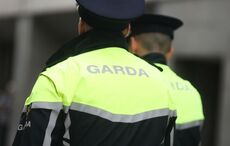Astronaut Scott Kelly’s genes were altered after spending a year in space, meaning he no longer perfectly resembles his identical twin, Mark.
Spending almost a year on the International Space Station (ISS), Scott Kelly’s body had to adapt to living in microgravity.
According to the findings from the NASA Twins Study, Scott’s genes had altered significantly. Researchers found that when Scott returned to Earth, 7% of his genes did not return to normal. The remaining 93% of his genetic make-up returned to normal shortly after coming back to Earth.
This was the final mission for Scott, who spent a total of 520 days in space during his career.
Read More: Mark Kelly, American hero, husband to Gabby Giffords: Intensely proud of his Irish heritage
Read More: NASA's Irish twins study reveals first study of space results on humans
Scott’s twin brother Mark is also an astronaut. As with all identical twins, the duo share exactly the same genetic make-up as they come from the same fertilized egg which had divided into two embryos.
After Scott stayed on the ISS from March 2015 to March 2016, Nasa said the 7% of genes which did not return to normal “point to possible longer-term changes in genes related to his immune system, DNA repair, bone formation networks, hypoxia, and hypercapnia”.
As a result, Scott may now be considered biologically older than his twin brother.
Sharing the news, he took to Twitter to state, "What? My DNA changed by 7%! Who knew? I just learned about it in this article. This could be good news! I no longer have to call @ShuttleCDRKelly my identical twin brother anymore."
The Twins Study, led by principal investigator Dr. Chris Mason of Weill Cornell Medicine, conducted a battery of physiological and psychological tests on Scott and compared the results to those of his brother back on Earth.
The study found that the genetic caps on the end of Scott’s chromosomes had increased in length.
“With this study, we’ve seen thousands and thousands of genes change how they are turned on and turned off. This happens as soon as an astronaut gets into space, and some of the activity persists temporarily upon return to Earth,” Dr. Mason said.
Dr. Mason added that the groundbreaking research would allow researchers to more fully understand the effects of space travel on human biology "for years to come".
Read More: Irish American astronaut documents earth from International Space Station (PHOTOS)
“This study represents one of the most comprehensive views of human biology. It really sets the bedrock for understanding molecular risks for space travel, as well as ways to potentially protect and fix those genetic changes,” he said.
Scott's one-year stint in space is "a stepping stone to a three-year mission to Mars," NASA reported.
At present, astronauts only spend six months on the International Space Station as standard. A mission to Mars, however, could take three years.
Further results on the Twins Study will be published later this year.
Scott lives in Houston, Texas. Mark, who is retired, lives in Tucson, Arizona, with his wife Gabby Giffords, a Senator who was the victim of a failed assassination attempt that made headlines all over the world.
I used to have an identical twin brother. Then this happened.... https://t.co/zQAKU4Nbji
— Mark Kelly (@ShuttleCDRKelly) March 15, 2018
Read More: Will Mark Kelly run for injured wife Gabby Gifford's seat?




Comments